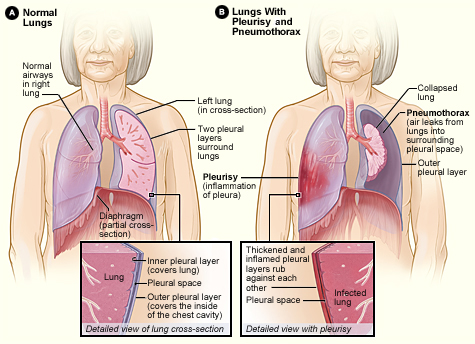
According to doctors on WebMD pleurisy causes chest pain that hurts when you breathe. If you have all three of those we call that typical chest pain or typical angina.

Or gastroesophageal reflux disease can cause a sharp and tender pain in the chest that may feel similar to a heart attack despite the pain being classified as a non-cardiac chest pain.
Slight pain in chest. Chest pain is only one of the possible signs of an impending heart attack. If you notice one or more of the signs below in yourself or someone else call 911 or your local emergency number right away. Uncomfortable pressure squeezing fullness burning tightness or pain in the center of the chest.
Or gastroesophageal reflux disease can cause a sharp and tender pain in the chest that may feel similar to a heart attack despite the pain being classified as a non-cardiac chest pain. A person should never ignore chest pain. If a person is experiencing chest pain on the left side of their body this could indicate a heart attack or other medical conditions such as a lung.
According to doctors on WebMD pleurisy causes chest pain that hurts when you breathe. Coughing sneezing or sudden movements can aggravate the pain. The chest pain is usually only on one side of the chest and feels like a stabbing uncomfortable pain.
If you feel sudden chest pain accompanied by pressure on your chest trouble breathing and dizziness it could be an indication of a life-threatening condition so ask for help immediately. Dull Chest Pain Right Side. Dull Chest pain on the right side is not always related to a heart attack.
Some of the most common causes of mild chest pain include heartburn anxiety and chest wall pain. Others include a direct trauma to the chest area a pulled muscle peptic ulcers and asthma. Some potentially more dangerous causes of chest pain include a heart attack or angina.
Chest pain and heart problems The most common heart problems that cause chest pain include. Pericarditis which usually causes a sudden sharp stabbing pain that gets worse when you breathe deeply or lie down angina or a heart attack which have similar symptoms but a heart attack is. Chest pain also can be the result of a cardiac issue or due to a non-cardiac cause such as gastroesophageal reflux disease or GERD 1 a muscle or skeletal problem in the chest 2 or even a symptom of COVID-19.
3 When associated with a panic attack chest pain is a common symptom but how do we know whats causing chest pain when we feel it. Chest pain from a heart attack typically feels like pressure or a squeezing sensation but it can vary from person to person. The challenge is that chest pain from anxiety and even COVID-19 can.
The ones that are concerning are if the chest pain is substernal its underneath the center of your chest where the is heart located if its provoked by exertion or stress and if its relieved by rest or nitroglycerin tablets. If you have all three of those we call that typical chest pain or typical angina.